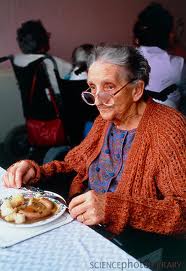Many older adults rarely enjoy visitors they seldom see during most of the year. Whether at home or in institutions, loneliness can be both difficult and dangerous for their overall health. Too many of them endure the negative impact of loneliness daily.
“Missing” is one of sixteen original poems at the end of each chapter in Becoming Dead Right: A Hospice Volunteer in Urban Nursing Homes. A hospice volunteer, I wrote it after witnessing the sadness of lonely nursing home residents who were missing the missing. They coped with ongoing loneliness that could easily have been avoided with gifts of time. But some relatives and friends kept putting off visiting them until it was too late. Consider making every effort to visit those who are ill or alone. Don’t sentence them to another year of missing you.
Missing
She waited,
hoping her years of caring
endured in grown-up minds,
rested in distant hearts,
conveyed how much she missed them.
She waited,
living real-time movies
of restless nights, anxious days
with inhaled hopes of fellowship,
exhaled sighs of deep despair.
She waited,
wishing nostalgic winds
flowed through cotton curtains,
brought relatives and friends
she cherished through the years.
She waited,
grasping like a New Year's resolution,
like a second suspended in time
until her clock stopped ticking
for visitors who never came.
© Frances Shani Parker
Frances Shani Parker, Author
Becoming Dead Right: A Hospice Volunteer in Urban Nursing Homes is available in paperback and e-book editions in America and other countries at online and offline booksellers.
Hospice and Nursing Homes Blog, Frances Shani Parker's Website








